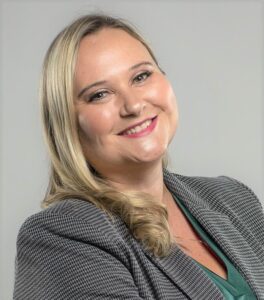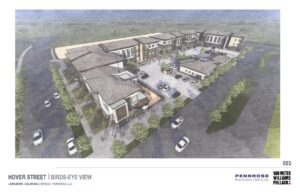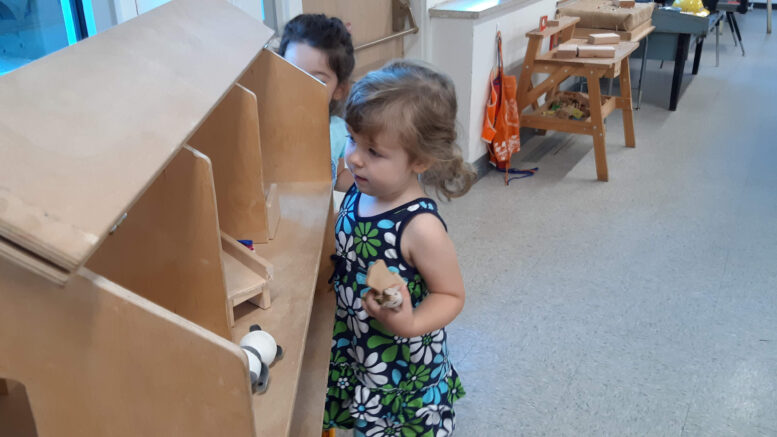If the connection between childcare and workforce availability was not already evident, it became abundantly clear early in the pandemic when women left the workforce at twice the rate of men as schools closed and there was nowhere to send their kids.
But even as Colorado lawmakers have made efforts in the past several years to boost the availability of childcare facilities — including a trio of bills in 2022 that put $115 million toward seeding early-child-education facilities and training workers — problems linger. According to a 2023 report from business-executive organization ReadyNation, the shortage of childcare in the state costs the economy some $2.2 billion annually as parents who are primarily mothers remain out of the workforce and employers stall expansions.
On Wednesday, the House Transportation, Housing & Local Government Committee will hear a bill that tries to address the situation by putting money toward construction of childcare facilities and also removing government obstacles stopping some from opening. House Bill 1237, sponsored by Republican Rep. Mary Bradfield of Fountain and Meghan Lukens of Steamboat Springs, would create three new state programs offering technical assistance to childcare providers, developers and local governments for four years.
Childcare as a workforce issue
The idea behind the new approach came from looking at how oversubscribed the 2022-spawned grant programs have been but still seeing that willing builders or operators of preschools have run into too many problems. Nicole Riehl — president/CEO of EPIC, Executives Partnering to Invest in Children — said the roadblocks she hears most about now include not just capital gaps in building new centers but zoning and building conflicts that must be resolved by bringing local governments on board as partners.

Nicole Riehl is president and CEO of childcare-focused business group EPIC.
“This really helps us to address the childcare deserts we see all across Colorado, which really impacts the workforce,” Riehl said, adding a heavy dose of optimism that the bill has bipartisan support. “We see so many people who want to be working but who can’t. We don’t need to reskill them; they already have skills. They just need childcare.”
HB 1237 would create a $1.8 million annual childcare facility capital development grant program to provide local governments or public-private partnerships money to construct or renovate facilities, particularly those co-located with other family services. Center-based facilities would have to provide a 50% match and home-based facilities a 25% match, and more weight in the competitive grant process would go to facilities in low-income neighborhoods and in regions with low childcare capacity.
Additional grants in the bill
It also would set up a $350,000 annual facility development toolkit and technical assistance program to provide consulting and help to developers, employers and local governments, as well as childcare providers to understand how to plan and build facilities. By including developers, this provision of the bill explicitly acknowledges the difficulties so far in getting childcare centers into affordable-housing complexes or other multiuse buildings where families could have easy access to them.
Finally, HB 1237 would fund a $950,000 annual childcare facility development planning grant program specifically to help local governments make regulatory improvements to community planning and zoning processes to support development of centers. While Riehl said she’s seen instances of community pushback against childcare facilities, they’re often misunderstandings around where such centers are sited — tiffs that could be avoided through a menu of recommended policy or regulatory tools that could be shared.
Brad Weinig of multifamily housing developer Pennrose needs to look no further than an affordable housing project that his company is building to show how the bill could break down existing barriers to building childcare facilities into residential complexes.

A rendering of an affordable-housing complex that Pennrose is building in Longmont in which it wants to include a three-classroom early childhood education facility
“It should be easier”
Pennrose is working with the Longmont Housing Authority to put a 75-unit affordable-housing project that is to include family-friendly features such as a large number of three- and four-bedroom apartments and a three-classroom early childhood education center. Getting the financing to include the childcare center, however, has been “difficult,” he acknowledged, as the tax credits Pennrose is using can’t be utilized to fund capital improvements like the classrooms, meaning he’s had to approach multiple foundations for prospective donations at a time when many are flooded with similar requests for help.
Had it been law when Pennrose kicked off the project, HB 1237 first would have helped by allowing the company to seek technical assistance on the best way to incorporate the two planning 16-student classrooms and one eight-child room into the project, Weinig said.
But it really would have offered a boost through the matching grants his company could seek, he said. Being able to go to donors and note that he already had raised as much as half of the $2.5 million it will cost to add the early childhood education center to the complex would have made his proposal a lot more attractive and smoothed a fundraising process that he remains “cautiously optimistic” to complete but can’t promise yet.
“I understand that it’s not meant to be easy,” Weinig said of the process of constructing an early childhood education facility in a housing complex. “But I do think that when something is so logically collocated an in equally short supply to affordable housing, it should be easier to combine them.”
Linking childcare to affordable housing
HB 1237 isn’t the only effort to boost childcare this session. Senate Bill 2, which has already passed both chambers and is on its way to Gov. Jared Polis’ desk, would allow local governments to offer property-tax breaks to developers to incentivize the building of needed facilities — a definition that includes childcare centers but also affordable housing and mental-health centers.
Riehl argued that HB 1237 is particularly needed as legislators begin to focus more on how to boost affordable housing statewide. If childcare centers more easily could be added to new complexes that could arise statewide, that could simultaneously attack the cost-of-living crisis in Colorado and the struggles that too many parents have in trying to find someone to care for their children while they build careers.
“If this passes, I would hope and expect to see communities investing in childcare in their long-term planning and development efforts,” she said.
The bill is scheduled second on the 1:30 p.m. hearing calendar for the committee, which meets Wednesday in the Old State Library on the second floor of the Capitol.
